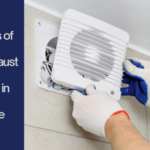Introduction
A well-maintained home not only provides a comfortable living space but also safeguards your investment for years to come. Home maintenance is essential to maintaining its structural integrity, functionality, and aesthetic appeal. By following proactive measures, you can minimize the likelihood of costly repairs, extend the lifespan of your home’s components, and create a safe haven for your family. Throughout this article, we will explore some essential tips and strategies for maintaining your home effectively.
Create a Maintenance Schedule
Establishing a comprehensive maintenance schedule is fundamental for staying organized and ensuring that all aspects of your home are properly maintained. Your maintenance tasks should be divided into monthly, quarterly, semi-annual, and annual categories. Include activities such as HVAC system checks, gutter cleaning, exterior inspections, appliance servicing, and more. Use digital reminders or calendars to stay on top of your schedule, ensuring that necessary tasks are never overlooked.
Regularly Inspect and Maintain Your HVAC System

The HVAC system plays an important role in maintaining the comfort of an interior. Regular inspections and maintenance are essential for optimal performance and energy efficiency. Replace air filters every few months or as recommended by the manufacturer, clean vents and ducts, and schedule professional inspections to identify any potential issues early on. You can extend the lifespan of your HVAC system by performing proper maintenance and good indoor air quality.
Protect and Update Your Plumbing System
Leaving plumbing issues unattended can result in significant damage. Check your pipes regularly for leaks, drips, or corrosion. Check faucets, showers, and toilets for any malfunctions or inefficient water flow. During the winter months, it is imperative to insulate exposed pipes to prevent freezing. Consider installing water-saving fixtures and be mindful of what you flush down the drains to prevent clogs. Water damage and costly repairs can be avoided by addressing plumbing issues promptly.
Maintain a Healthy Roof
Your roof protects your home from the elements, so it’s crucial to keep it in good condition. Inspect your roof for missing or damaged shingles, signs of water intrusion, or any sagging areas. Regularly clean gutters and downspouts to prevent water accumulation. Trim tree branches that may overhang and cause damage during storms. You should hire a professional roofer if necessary to ensure the longevity of your roof.
Preserve Your Exterior
The exterior of your home is exposed to various weather conditions, which can lead to wear and tear over time. Regularly inspect your home’s siding, paint, and stucco for any cracks, peeling, or discoloration. Power-wash the exterior to remove dirt and mildew buildup, and apply a fresh coat of paint or sealant when necessary. Inspect and maintain your windows, doors, and seals to enhance energy efficiency and prevent water intrusion.
Attend to Electrical Systems and Safety
Your home and personal safety are at risk from electrical issues. Make sure that smoke detectors are tested regularly and that batteries are replaced when necessary. Check electrical outlets and electric burner for loose connections or signs of damage. If you notice flickering lights or frequently tripped circuit breakers, consult an electrician. Protect your appliances and electronics by not overloading outlets and using surge protectors. Consider scheduling an annual electrical inspection to identify potential hazards.
Embrace Proactive Pest Control
Pests can quickly become a nuisance and cause damage to your home. Make sure your home’s exterior is sealed against pests by sealing cracks and openings. Maintain a clean and healthy living environment. Regularly inspect your attic, basement, and crawl spaces for signs of pests or infestations.
Now, we will explore essential home maintenance tips and strategies that will empower you to become a master of caring for your dwelling:
Develop a Maintenance Schedule:
Regular maintenance is the foundation of a well-kept home. To ensure that tasks are organized throughout the year, create a maintenance schedule. Divide the checklist by seasons, prioritizing crucial tasks. Schedule inspections, cleaning routines, and necessary repairs to stay ahead of potential issues. You may also visit answertenant for more information.
Protecting the Exterior:
- Roof and Gutters: Inspect the roof for loose or damaged shingles and ensure proper drainage by cleaning the gutters and downspouts. Prevent water damage by addressing any issues as soon as possible.
- Windows and Doors: To improve energy efficiency and maintain a comfortable indoor climate, check for air leaks around windows and doors and replace damaged weatherstripping.
- Exterior Surfaces: Regularly inspect and maintain the exterior surfaces of your home, including siding, paint, or brickwork. Repair any cracks, peeling paint, or damaged areas to protect against weather elements and maintain curb appeal.
Plumbing and Electrical Systems:
a) Plumbing: Make sure that the pipes are free of leaks, drips, and corrosion. To prevent further damage, clear clogged drains as soon as possible. Consider scheduling professional inspections of your plumbing system to catch any potential issues early on.
b) Electrical: Regularly test outlets, switches, and circuit breakers. Replace any faulty or outdated components to ensure safety. Consider hiring a licensed electrician for a comprehensive inspection every few years.
Heating, Ventilation, and Air Conditioning (HVAC) Systems:
a) Filters: Clean or replace HVAC filters regularly to maintain efficient operation and improve indoor air quality. Consider having a professional HVAC service inspect and clean the system annually.
b) Ductwork: Periodically check ductwork for leaks or blockages. Clean the vents and remove any dust or debris to enhance airflow and prevent potential health issues.
Interior Care:
a) Flooring: Regularly clean and maintain different types of flooring, whether it’s vacuuming carpets, mopping hardwood floors, or polishing tiles. Repair or replace damaged flooring promptly to prevent further issues.
b) Appliances: Follow the manufacturer’s maintenance recommendations for all appliances. Clean filters, remove lint from dryers, descale coffee makers, and keep your appliances in optimal condition to extend their lifespan.
c) Safety Measures: Test smoke detectors and carbon monoxide detectors regularly. Replace batteries annually and ensure fire extinguishers are in working order. Familiarize yourself with emergency shut-off valves for gas, water, and electricity.
Landscaping and Outdoor Areas:
- Yard Maintenance: Regularly mow the lawn, trim shrubs, and remove weeds to keep your yard tidy and prevent overgrowth that could lead to pest issues. Maintain outdoor furniture, decks, and patios.
- Drainage: To prevent water buildup around your property and possible foundation damage, ensure that proper drainage is in place. Make sure that gutters, downspouts, and drainage systems are free of debris.
In Conclusion:
In conclusion, home maintenance is an ongoing commitment that ensures your residence remains a comfortable, safe, and valuable asset for years to come. By following a well-structured maintenance schedule and attending to essential tasks promptly, you can preserve and enhance your sanctuary. Remember, a little effort and attention today can save you from costly repairs and provide peace of mind in the future. Take pride in caring for your home, and it will continue to provide you with comfort and shelter for a lifetime.












